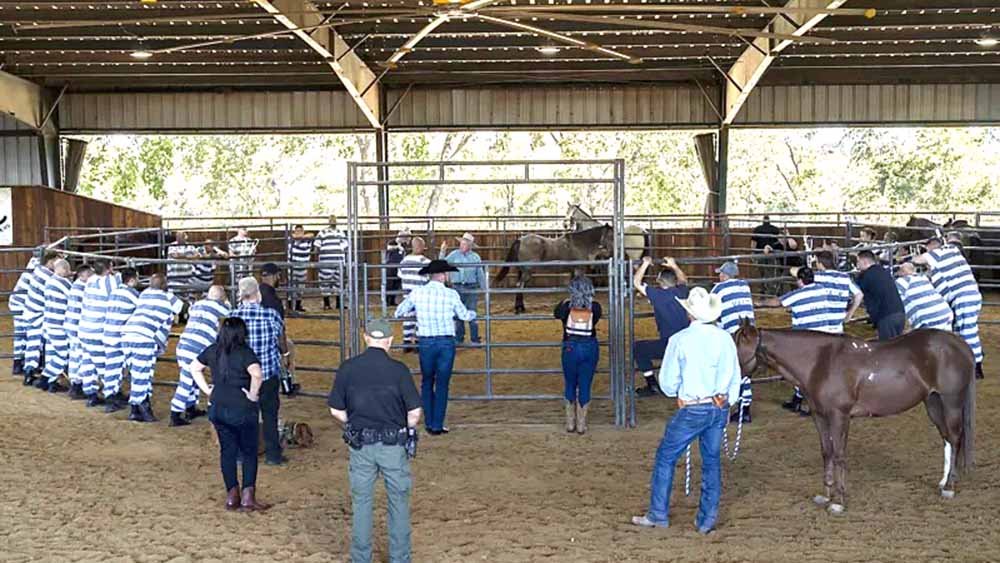Nearly one third of the US’s war veterans have been arrested or jailed at some point in their lives – a new programme using horse-therapy is attempting to tackle the underlying trauma they have suffered.
Two dozen men and women are leaning against the iron bars of a round pen, peering in. They’ve all been freed from their jail cells for the morning.
The heat of the Texan sun beats through the roof above as an instructor, Pat Puckett, shows one member of the group how to do something they’ve never done before: put a bit into a horse’s mouth.
The student nervously tries to follow Puckett’s instructions, but the horse does not relent, rejecting the bit and pulling his head away. After a few failed attempts, the instructor takes the bit from the flustered student, motioning for him to step back from the agitated animal.
“Horses,” says Puckett, addressing everyone present, “are sensitive. People are not. We’ll never be as sensitive as a horse – but we can try.”
All of Puckett’s students here are inmates serving time at Collin County Jail, just north of Dallas, Texas. They are also all military veterans taking part in a pioneering US programme to bring horse-assisted, also known as equine therapy, to incarcerated veterans.
Seasoned horse trainer Puckett, 75, is a veteran, too. He was drafted into the US army as a teenager and served two years in artillery during the Vietnam War.
“It’s been 50 years since I was in Vietnam,” Puckett tells me later. “I get sad every day. If I think about one single thing, I remember the smell of guts. You never lose the smell of a human’s guts. As soon as I started cowboying, I put something positive in front of those thoughts. But I’ll never, ever, ever forget it.”
The Veterans Accessing Lifelong Opportunities for Rehabilitation (Valor) programme, established in 2018, currently works with roughly 40 veterans from across Texas. It provides a range of services including mental health counselling and group counselling for anger management as well as support groups for veterans with combat-related Post-Traumatic Stress Disorder (PTSD).
Those who run Valor say they want to address disparities in incarceration rates between civil and veteran populations. Those disparities are stark: around 8% of prisoners in the US are veterans. In 2016, the most recent data available, 107,000 veterans are imprisoned in the US. And nearly one third of the country’s war veterans have at some point in their lives been arrested or jailed – nearly double the rate among civilians. (BBC)
Sunday, February 22, 2026

